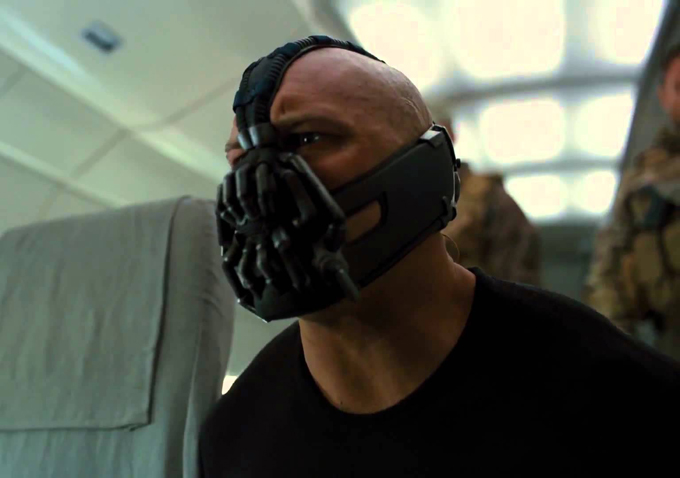 While the mechanics of Christopher Nolan‘s films can be divisive, there’s no denying that he’s is one of the best at enacting spectacle on the big screen —his achievements as such include the docking sequence in his most recent "Interstellar" to the sleight-of-hand in "The Prestige" to the tilted hallway fight of the mind-bending "Inception." During a talk last night at the Tribeca Film Festival hosted by Bennett Miller, Nolan was asked to choose which of his blockbuster sequences was his favorite. And he selected the pretty terrific opening airplane kidnapping scene from "The Dark Knight Rises."
While the mechanics of Christopher Nolan‘s films can be divisive, there’s no denying that he’s is one of the best at enacting spectacle on the big screen —his achievements as such include the docking sequence in his most recent "Interstellar" to the sleight-of-hand in "The Prestige" to the tilted hallway fight of the mind-bending "Inception." During a talk last night at the Tribeca Film Festival hosted by Bennett Miller, Nolan was asked to choose which of his blockbuster sequences was his favorite. And he selected the pretty terrific opening airplane kidnapping scene from "The Dark Knight Rises."
“It took us about two days in Scotland," he explained about the sequence, which you can watch below. "And it was an incredible sort of coming together of months and months of planning by a lot of different members of the team who worked for months rehearsing these parachute jumps and wind walking, all these different things… The visual effects work in the sequence is very minimal… I was really amazed by what the team we had put together had achieved using very sort of old-fashioned methods, in a way. I was very proud of the way that came together.”
If there’s something clinical in Nolan’s answer, it shouldn’t be surprising given how he describes his screenwriting process. “I don’t write a story outline. I work intuitively, but I draw a lot of diagrams when I work," he said. "I do a lot of thinking about etchings by Escher, for instance. That frees me, finding a mathematical model or a scientific model. I’ll draw pictures and diagrams that illustrate the movement or the rhythm that I’m after.”
And that spirit carries over into the editing process: “I’ve always edited in a huge hurry," he said, "trying to catch that lightning in a bottle, just so the energy is there. I always think of editing as instinctive or impressionist. Not to think too much, in a way, and feel it more.”
Yet Nolan is still operating in a very mainstream business, one that requires success of the four quadrant variety —which Nolan attributes to an "enormous amount of luck"— to be afforded the kind of creative latitude he enjoys. It’s a process that requires dealing with studios too, but Nolan has figured out how to deal with execuitves from one of his earliest supporters. “I learned how to accept notes from the studio while still pursuing your own vision from Steven Soderbergh, my mentor. You have to get out there and find a place for yourself. You have to make your own rules. You have to figure out what’s going to work for you… He taught me that you’re on your own and you have to get out there and make it work.”
Indeed, Nolan has been making it work quite well, but game recognizes game, and the director tipped his hat to one 2014 movie in particular. “I really loved ‘Whiplash‘ last year. I thought that was an incredible piece of work. That was the kind of film where when you see it, it’s very precisely put together and you’re very jealous,” he said.
Of course, the Q&A at Tribeca included the inevitable question about the ending of "Inception," but Miller fielded that one. “I asked him that same question backstage, and he said the answer is not for public consumption,” he said. But Nolan shared the advice his brother Jonathan gave him about keeping the ending secret: “Nobody will be able to look past what you’ve said.” [via Long Live Cinema/Tribeca].
Note: audio is silent for the first 15 seconds or so, then kicks in.

